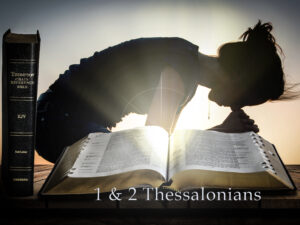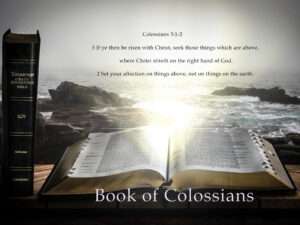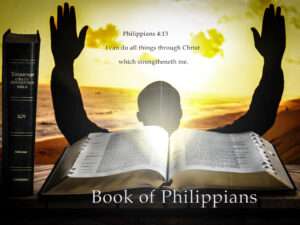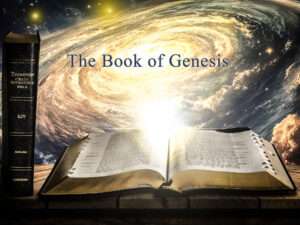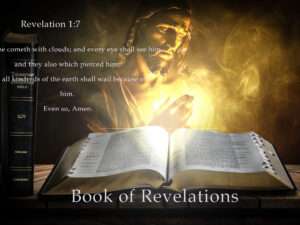008 - Jonah, Micah, Nahum, and Habakkuk
- Description
- Curriculum
- FAQ
- Reviews
- Grade
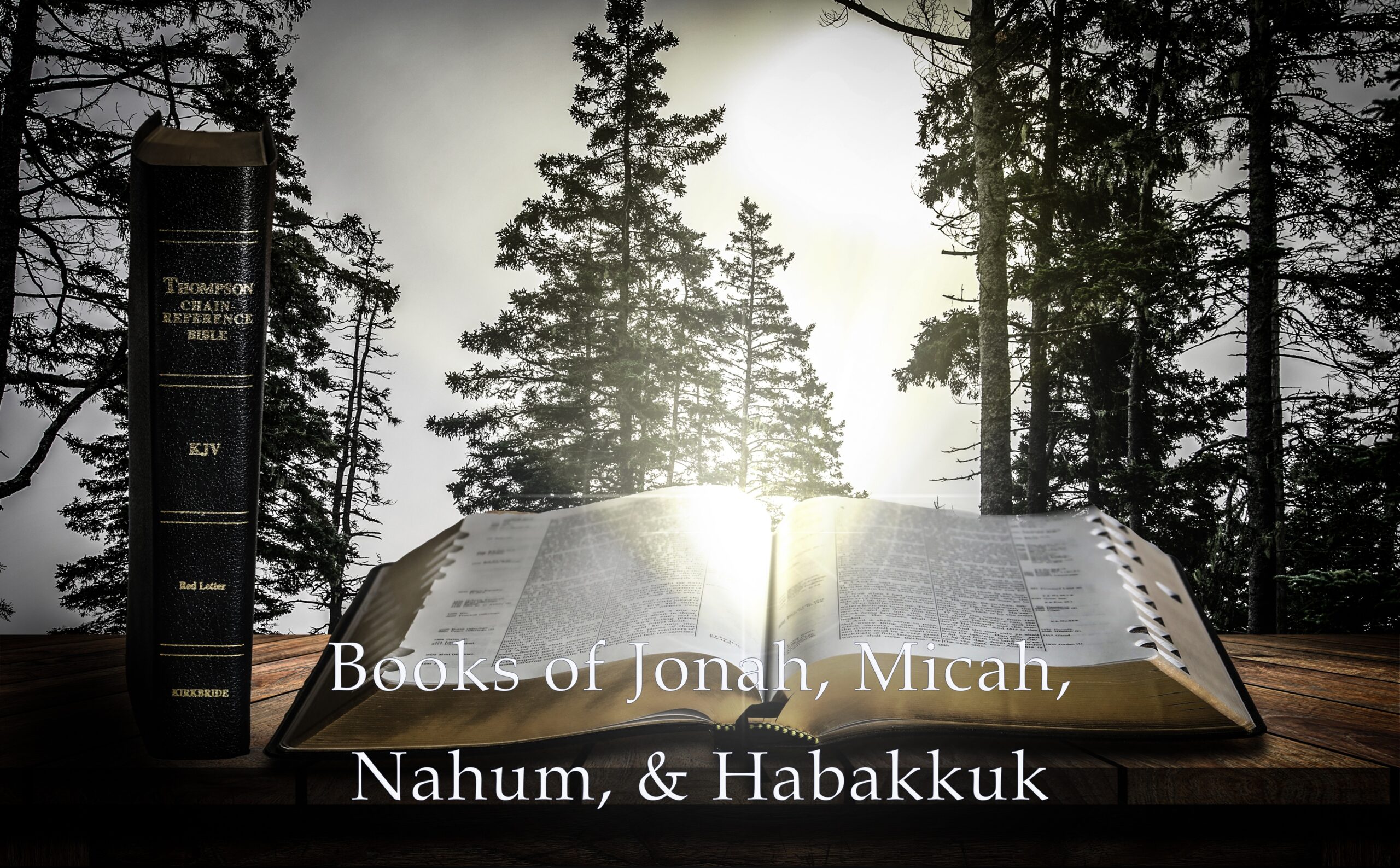
This course explores the prophetic books of Jonah, Micah, Nahum, and Habakkuk, offering students a deeper understanding of God’s justice, mercy, and sovereignty in dealing with both Israel and the surrounding nations. Each prophet delivers a unique message—Jonah highlights God’s compassion for repentant sinners, Micah calls for justice and true worship, Nahum declares God’s judgment against Nineveh, and Habakkuk questions and ultimately trusts God’s righteous plan in troubling times. Students will examine historical context, prophetic themes, and relevant applications for today’s believer, while gaining valuable insight into God’s character and His dealings with mankind. This course emphasizes verse-by-verse study and practical application, helping students grow in biblical knowledge and spiritual maturity.
-
1Jonah Chapters 1 and 2: God's Mercy and Jonah's Repentance
In this lesson, we examine Jonah Chapters 1 and 2. Jonah’s disobedience leads to a dangerous storm, his being cast into the sea, and his miraculous preservation in the belly of a great fish. From the fish’s belly, Jonah prays to God, acknowledging His deliverance. These chapters emphasize God’s power, mercy, and Jonah’s path from rebellion to repentance.
-
2Jonah Chapters 1 and 2: God's Mercy and Jonah's Repentance - lecture
In this lesson, we examine Jonah Chapters 1 and 2. Jonah’s disobedience leads to a dangerous storm, his being cast into the sea, and his miraculous preservation in the belly of a great fish. From the fish’s belly, Jonah prays to God, acknowledging His deliverance. These chapters emphasize God’s power, mercy, and Jonah’s path from rebellion to repentance.
-
3Jonah Chapters 1 and 2: God's Mercy and Jonah's Repentance - quizThis quiz will test your understanding of Jonah Chapters 1 and 2. Be sure to carefully consider the wording of each question, as all questions align with the KJV Bible text only.
-
4Jonah Chapters 3 and 4: Nineveh Repents and Jonah's Anger
In Jonah chapters 3 and 4, we see the remarkable mercy of God extended not only toward the great city of Nineveh but also toward Jonah himself. After being delivered from the belly of the fish, Jonah receives a second commission to preach to Nineveh. The people of Nineveh, from the greatest to the least, respond with genuine repentance. Chapter 4 shifts the focus to Jonah's displeasure at God’s mercy, revealing the prophet's inner struggle with divine compassion and justice. These chapters highlight themes of obedience, repentance, mercy, and the heart of God toward all people.
-
5Jonah Chapters 3 and 4: Nineveh Repents and Jonah's Anger - lecture
In Jonah chapters 3 and 4, we see the remarkable mercy of God extended not only toward the great city of Nineveh but also toward Jonah himself. After being delivered from the belly of the fish, Jonah receives a second commission to preach to Nineveh. The people of Nineveh, from the greatest to the least, respond with genuine repentance. Chapter 4 shifts the focus to Jonah's displeasure at God’s mercy, revealing the prophet's inner struggle with divine compassion and justice. These chapters highlight themes of obedience, repentance, mercy, and the heart of God toward all people.
-
6Jonah Chapters 3 and 4: Nineveh Repents and Jonah's Anger - quizThis quiz will test your understanding of Jonah Chapters 3 and 4. Be sure to carefully consider the wording of each question, as all questions align with the KJV Bible text only.
-
7Micah Chapters 1–4: The Judgment and Restoration of Israel
-
8Micah Chapters 1–4: The Judgment and Restoration of Israel - lecture
The book of Micah is a prophetic work attributed to the prophet Micah, who prophesied during the reigns of Jotham, Ahaz, and Hezekiah, kings of Judah. He was a contemporary of Isaiah, and his messages were directed to both Samaria (the capital of Israel) and Jerusalem (the capital of Judah). Micah's name means "Who is like unto the LORD?", and his ministry focused on proclaiming God's judgment against sin, especially the social injustices and idolatry of the people. However, he also spoke of future restoration, the coming of the Messiah, and the ultimate peace that God would bring to His people. The tone of the book alternates between stern warnings of judgment and hopeful promises of mercy and restoration.
-
9Micah Chapters 1–4: The Judgment and Restoration of Israel - quizThe following questions are based on Micah chapters 1 through 4. Each question is derived directly from the King James Bible to ensure accuracy and alignment with scripture.
-
10Micah Chapters 5–7: The Coming Ruler and God's Controversy with Israel
Micah chapters 5 through 7 conclude the book with a prophetic focus on the coming of the Messiah, judgment upon the ungodly, and a final message of hope and restoration for Israel. These chapters reveal both the judgment due to Israel's sin and the merciful plan of God to redeem His people through the promised ruler from Bethlehem. The text oscillates between judgment and mercy, lament and hope, showing the full character of God's justice and lovingkindness.
-
11Micah Chapters 5–7: The Coming Ruler and God's Controversy with Israel - lecture
Micah chapters 5 through 7 conclude the book with a prophetic focus on the coming of the Messiah, judgment upon the ungodly, and a final message of hope and restoration for Israel. These chapters reveal both the judgment due to Israel's sin and the merciful plan of God to redeem His people through the promised ruler from Bethlehem. The text oscillates between judgment and mercy, lament and hope, showing the full character of God's justice and lovingkindness.
-
12Micah Chapters 5–7: The Coming Ruler and God's Controversy with Israel - quizThis quiz covers important themes, verses, and teachings from Micah chapters 5 through 7. All questions are based strictly on the King James Version of the Bible.
-
13Nahum Chapters 1–3: The Fall of Nineveh – God's Judgment on a Wicked Nation
Introduction to the Book and Lesson: The book of Nahum is a short but powerful prophetic declaration of God's judgment upon the city of Nineveh, the capital of the Assyrian Empire. Though Jonah had earlier preached repentance to Nineveh, leading to a temporary turning to God, the people returned to their wickedness. Nahum's prophecy, delivered about a century later, serves as a solemn warning that God will not always withhold judgment from unrepentant sin. This three-chapter book reveals the holiness, justice, and power of God as He brings down a nation that had once terrorized many others.
-
14Nahum Chapters 1–3: The Fall of Nineveh – God's Judgment on a Wicked Nation - lecture
The book of Nahum is a short but powerful prophetic declaration of God's judgment upon the city of Nineveh, the capital of the Assyrian Empire. Though Jonah had earlier preached repentance to Nineveh, leading to a temporary turning to God, the people returned to their wickedness. Nahum's prophecy, delivered about a century later, serves as a solemn warning that God will not always withhold judgment from unrepentant sin. This three-chapter book reveals the holiness, justice, and power of God as He brings down a nation that had once terrorized many others.
-
15Nahum Chapters 1–3: The Fall of Nineveh – God's Judgment on a Wicked Nation - quizThis quiz assesses your understanding of the key themes, verses, and prophecies from the Book of Nahum, chapters 1–3. Be sure to reflect on the scripture and lesson content as you answer each question.
-
16Habakkuk Chapters 1–3: Trusting God Amid Judgment
The Book of Habakkuk is a dialogue between the prophet Habakkuk and the Lord, written during a time of increasing wickedness and impending judgment. Unlike many prophetic books where the prophet speaks to the people on behalf of God, Habakkuk speaks to God on behalf of the people, asking hard questions about justice and the triumph of evil. This short yet powerful book unfolds in three chapters, beginning with the prophet’s complaints, continuing with the Lord’s responses, and ending with a prayer of faith and trust. Habakkuk teaches that even in the midst of troubling times and divine judgment, the just shall live by faith (Habakkuk 2:4).
-
17Habakkuk Chapters 1–3: Trusting God Amid Judgment - lecture
The Book of Habakkuk is a dialogue between the prophet Habakkuk and the Lord, written during a time of increasing wickedness and impending judgment. Unlike many prophetic books where the prophet speaks to the people on behalf of God, Habakkuk speaks to God on behalf of the people, asking hard questions about justice and the triumph of evil. This short yet powerful book unfolds in three chapters, beginning with the prophet’s complaints, continuing with the Lord’s responses, and ending with a prayer of faith and trust. Habakkuk teaches that even in the midst of troubling times and divine judgment, the just shall live by faith (Habakkuk 2:4).
-
18Habakkuk Chapters 1–3: Trusting God Amid Judgment - quizThis quiz covers the key themes, chapters, and verses from the Book of Habakkuk, focusing on the prophet’s dialogue with God during a time of judgment. Students will reflect on faith, justice, and God’s response to evil.
•tAssigned Bible reading
•tVideo lectures (if available)
•tLecture notes
•tA quiz to assess understanding
•tStandalone Biblical Courses have no prerequisites and can be taken individually by anyone interested in biblical studies.




